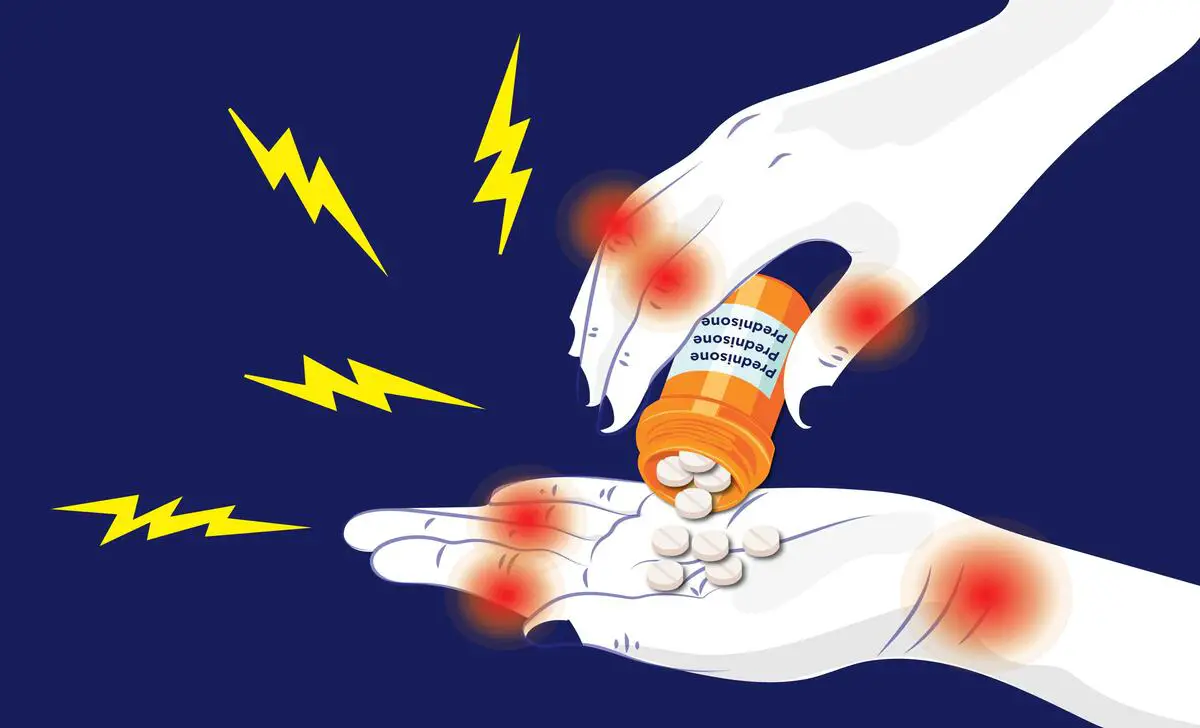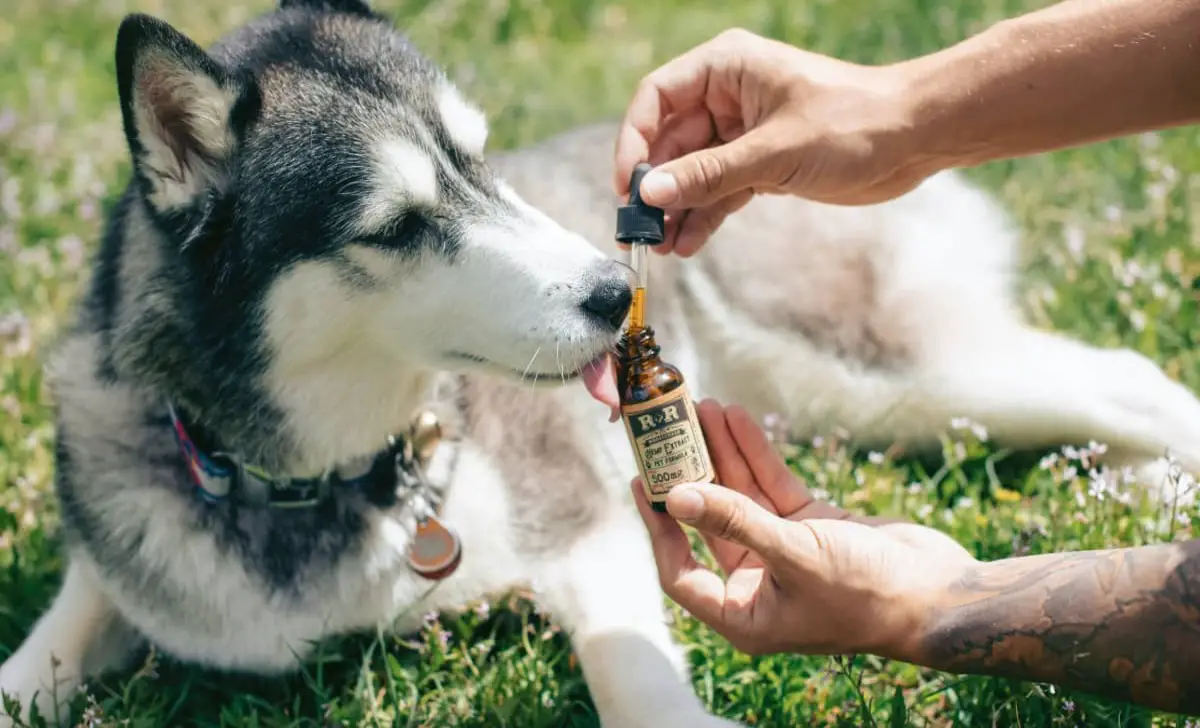Prednisone is a corticosteroid medication handy in veterinary medicine for treating various dog conditions. Including inflammation, allergic reactions, autoimmune diseases, and certain types of cancer. It works by suppressing the immune system and reducing inflammation in the body.
But it can also come with serious risks and side effects if not used properly. Before starting Prednisone treatment for your dog, discussing potential risks and side effects with your veterinarian is important. Monitoring your dog’s response to the medication and adjusting dosage as needed can help minimize these risks. Prednisone, a commonly prescribed dog medication, can have serious and fatal side effects.
As pet owners, we want to do everything we can to help our furry friends feel better, but it’s important to understand what we’re giving them and its associated risks. We’ll also discuss the potential short-term and long-term side effects of Prednisone in dogs and the risks and complications associated with its use.

Ingredients Of Prednisone For Dogs

Common inactive ingredients found in prednisone tablets for dogs may include:
- Lactose
- Cornstarch
- Magnesium stearate
- Microcrystalline cellulose
- Silicon dioxide
- Sodium starch glycolate
- Stearic acid
In tablet formulation, these inactive ingredients are often used as fillers, binders, or lubricants. However, you must consult the specific product label or your veterinarian for accurate information on the ingredients in a particular brand of prednisone tablets for dogs.
Brief Overview Of Prednisone In Dogs

Here’s a brief overview of prednisone use in dogs:
| Aspect | Information |
|---|---|
| Drug Class | Corticosteroid |
| Common Uses | Anti-inflammatory |
| Immunosuppressant | |
| Allergic reactions | |
| Autoimmune diseases | |
| Certain cancers | |
| Dosage Form | Tablets, oral solution, injection |
| Dosage Range | 0.5 to 2 mg/kg orally once to twice daily |
| Side Effects |
|
|
|
|
|
|
|
|
|
|
|
| Precautions | Should not be used in pregnant animals |
| Long-term use may require tapering off. | |
| It should be used cautiously in animals with diabetes or kidney disease. | |
It’s important to note that prednisone should only be handy under the guidance of a veterinarian. Its use requires careful monitoring due to potential side effects and interactions with other medications.
Prednisone Killed My Dog – Possible Reasons

Prednisone, a commonly prescribed medication, can have serious side effects in some cases, including on pets. While Prednisone can effectively treat certain conditions.
Following the veterinarian’s instructions carefully and being aware of potential adverse reactions is crucial. In some cases, Prednisone can cause adverse reactions in dogs. Particularly when used for an extended period or at high doses.
Here are steps outlining possible reasons for how Prednisone could lead to the death of a dog:
1.Prednisone As An Anti-Inflammatory Drug

Prednisone is commonly handy to dogs to reduce inflammation. But in some cases, it can suppress the immune system too much, leaving the dog vulnerable to infections. If not properly monitored, infections can become severe and even life-threatening, potentially leading to the dog’s death.
2.Prednisone As An Immunosuppressive Drug
Prednisone works by suppressing the immune system’s response. Which can be beneficial in certain conditions but also make the dog susceptible to infections and illnesses. If the dog develops a severe infection while on Prednisone. Its weakened immune system may struggle to fight it off, potentially leading to death.
3.Prednisone In Addison’s Disease
In cases of Addison’s disease, where the adrenal glands do not produce enough hormones, Prednisone is often handy as a replacement therapy. However, if the dosage is not carefully monitored and adjusted. It can lead to complications such as electrolyte imbalances or adrenal crisis, which can be fatal if not promptly treated.
4.Prednisone For Dogs With Cancer

Prednisone is part of the treatment for dogs with cancer to reduce inflammation and alleviate symptoms. However, if the cancer is aggressive or not responsive to treatment. Prednisone may only provide temporary relief and not address the underlying cause, potentially leading to the dog’s death.
5.Effects On The Gastrointestinal System
Prednisone can have adverse effects on the gastrointestinal system, including stomach ulcers, gastrointestinal bleeding, and pancreatitis. If these complications are severe or go untreated, they can lead to systemic issues such as sepsis or organ failure, ultimately resulting in the dog’s death.
6.Effects On The Endocrine System
Prednisone can disrupt the body’s natural hormone balance, particularly the production of cortisol by the adrenal glands. Prolonged use of Prednisone can suppress adrenal function, leading to adrenal insufficiency or exacerbating existing conditions such as Cushing’s disease. These endocrine disruptions can have cascading effects on the body’s regulatory systems. Potentially leading to fatal complications if left unaddressed.
7.Long-Term Use And Side Effects
- Organ Damage: Long-term use of prednisone can lead to liver and kidney damage.
- Bone Health: Chronic use can cause osteoporosis and increase the risk of fractures
How Is It Used For Treat

Prednisone is a commonly handy medication for various conditions in dogs. Here are the typical steps involved in using prednisone to treat dogs:
- Diagnosis: Prednisone is handy for a veterinarian after diagnosing a specific condition in your dog. This could include allergies, autoimmune diseases, inflammatory conditions, or certain cancers.
- Prescription: Your vet will determine the appropriate dosage of prednisone based on your dog’s weight, age, overall health, and the specific condition for treated.
- Administration: Prednisone is usually administered orally as tablets or liquid suspension. Follow your vet’s instructions carefully regarding dosage and frequency.
- Monitoring: During treatment, it’s important to monitor your dog for any side effects or changes in behavior. Notify your vet if you notice any concerning symptoms.
- Duration: The duration of treatment with prednisone can vary depending on the condition for treated. It’s important to complete the full course of medication as your vet prescribes, even if your dog’s symptoms improve before the medication is finished.
How Other Medications Might Amplify Prednisone’s Side Effects

Medications like Prednisone interactions with other drugs can sometimes amplify its side effects, leading to adverse reactions in pets. It’s crucial to be aware of how different medications may interact and potentially increase the impact of Prednisone on your dog.
Some medications, when combined with Prednisone, can heighten the risk of side effects such as gastrointestinal upset, changes in behavior, or weakened immune response. Always consult your veterinarian about your dog’s medication regimen and any potential interactions that could threaten your pet’s health.
It’s crucial always to administer Prednisone under the guidance of a veterinarian and to closely monitor the dog for any adverse reactions or complications. Regular check-ups and blood tests can help ensure that the dosage is appropriate and that potential risks are identified and managed promptly.
Conclusion
Prednisone is a powerful medication that can be a lifesaver for dogs with certain medical conditions. If you suspect your dog may be experiencing side effects from Prednisone or if you have concerns about its use. Consult your veterinarian immediately to know why Prednisone killed my dog. Together, we can ensure that our furry companions receive the best possible care and treatment.
By being aware of the potential dangers and taking proactive measures, such as regular check-ups and alternative treatments, pet owners can help prevent tragic outcomes like losing a furry family member. If you have concerns about your pet’s medications or health, always consult your veterinarian for guidance and support.
Frequently Asked Questions
1.What Are The Dangers Of Prednisone For Dogs?
Prednisone can have several potential side effects and dangers for dogs, particularly when used for long periods or at high doses. These include diabetes, liver and kidney damage, weakened immune system, weight gain, increased thirst and urination, weakness, and behavioral changes.
2.Does Prednisone Have Mental Side Effects In Dogs?
Yes, Prednisone can have mental side effects in dogs. Common side effects include increased irritability, anxiety, and restlessness. Prednisone can also cause behavioral changes such as aggression or depression.
3.What Can I Give My Dog Instead Of Prednisone?
If you are looking for alternatives to Prednisone for your dog, it is important to talk to your veterinarian. Depending on the condition, there may be other medications that can be handy instead. Your vet can help determine the best course of treatment for your pet. Some possible alternatives to Prednisone include NSAIDs, supplements, and dietary changes.
4.How Long Is It Safe For A Dog To Take Prednisone?
The safe duration for a dog to take Prednisone varies depending on the condition being treated. And the individual dog’s response to the medication. However, long-term Prednisone use can have serious side effects, such as the increased risk of infection, diabetes, and Cushing’s disease.
5.What If I Stop Giving My Dog Prednisone?
Stopping prednisone abruptly can cause withdrawal symptoms and potentially worsen underlying conditions. It is crucial to consult with your veterinarian before changing your dog’s medication regimen to ensure a safe and effective transition plan.
They can guide tapering off the medication to minimize any adverse effects and address any concerns or alternative treatment options. Prioritize your pet’s health and well-being by seeking professional advice before discontinuing any prescribed medications.
6.Does Prednisone Make Dogs’ Legs Weak?
Prednisone can cause muscle weakness in dogs as a side effect. This can manifest as weakness in the legs, making it difficult for the dog to stand or walk properly. It is important to monitor the dog closely while on prednisone and consult with a veterinarian if there are concerns about muscle weakness or other side effects.
